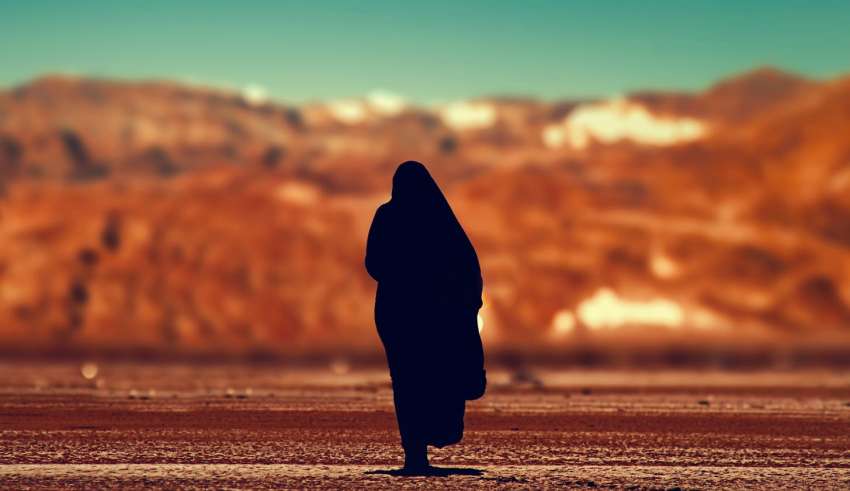
In Islam there is no such thing as “Just a mom” – mother IS the top job.
In a Muslim family, the mother is the most important person. A child in Islam is obliged to obey and fulfill the wishes of his mother before those of his father. Muslim children around the world are brought up on the idea that ‘Paradise lies beneath the feet of their mother.’ This is not meant literally, but rather to illustrate that by serving their mother, they can earn God’s forgiveness and entry into everlasting Paradise.
Rewards for Her Hard Work
Mothers in Islam are given greater rights because she has the greater day to day responsibility of looking after the children due to the fact she goes through pregnancy, childbirth and breastfeeding. Islam acknowledges and appreciates that it is a tremendous struggle for the the woman to carry and give birth to a child. Then she has to devote herself to caring for the helpless baby and to breastfeeding, which in Islam, is recommended for two years.
The debt, however, cannot ever be fully repaid. There is a well known story of a man who thought he had repaid his mother. He carried her on his back, while on pilgrimage to the Ka’bah, saying ‘I carried her more than she carried me.’ He then asked Ibn Umar, the companion of the Prophet Muhammad ﷺ, “Do you think I have repaid her?” The companion replied, ‘No, not even for a single groan (of the birth pangs she suffered).’
Service Her With a Smile
All of this is not to say the status of the father is insignificant because it’s not. In Islam, parents in general are given a very high status, and to be a source of pain, annoyance and stress to them is a major sin. In the Quran, God states,
“And We have enjoined upon man goodness to parents.”
[Noble Quran 29:8]
You are obligated to do whatever your parents ask of you, in the same way you are obligated to obey God. It’s not enough to carry out the wishes of your parents, but it must be done willingly and cheerfully, without showing exasperation and contempt. The Quran goes as far as commanding you not to even say ‘uff’, which is an expression of annoyance. It is similar to how we might sigh or say ‘ugh’ when we are irritated. The only exception to disobeying your parents is if their requests break the rules of Islam.You can kindly decline but you still have to continue to be kind to them:
Pleasing Your Mom Pleases God
The Quran connects obedience to God with obedience to parents:
“Worship Allah and associate nothing with Him, and to parents do good,”
[Noble Quran 4:36]
To anger parents is to earn the displeasure of God. The Quran very clearly singles out the mother for especially kind treatment because she bears much of the burden in raising the child.
“And We have enjoined upon man [care] for his parents. His mother carried him, [increasing her] in weakness upon weakness, and his weaning is in two years. Be grateful to Me and to your parents; to Me is the [final] destination.” [Noble Quran 31:14]
The Prophet Muhammad ﷺ further confirmed the greater rights of the mother, on the occasion when one of the Companions asked him,
“Allah’s Messenger, who amongst the people is most deserving of my good treatment? He said: Your mother, again your mother, again your mother, then your father, then your nearest relatives according to the order (of nearness)” [Sahih Muslim]
Sacrificing for the Greater Good
These commandments of Islam led the early Muslims to go to extraordinary lengths to please their parents. They slept less in order to work to help provide, or to care for the elderly. They ate less so their parents had generous helpings of food. They would carry and serve their parents when they became old. Even after their parents died they would continue to show kindness to the friends of their parents. They considered it an immense honour to serve these friends.
One time a man went to Umar, who was the second ruler of Islam, and said that he looked after his elderly mother by carrying her on his back when she needed to go to the toilet and helping her with her bathing. He asked, ‘Have I fulfilled my duty towards her?’ Umar replied in the negative and the man said, ‘Even though I carry her on my back and exert myself in her service?’ Umar replied, ‘she used to do the same for you when you were young, hoping you would live, as for you, you await while she will go away (die).’
You are expected to show kindness to your parents even if their beliefs are different from yours. One time, Asma, the sister-in-law of the Prophet Muhammad ﷺ, came to him asking him whether she should maintain relations with her mother, who was not a Muslim and who was spiteful toward Islam. The Prophet replied, “Yes, be good to your mother.” [Bukhari]
Benefits of Your Actions
Being kind to your parents seems like such a simple thing. However, it’s not always that easy. Some parents are verbally or physically abusive. Some parents are very strong in their beliefs and belittle anything that goes against what they stand for. Some parents have physical or mental health issues. It is precisely because it is difficult and complicated that the reward in Islam is so great. God blesses and compensates you for your intentions and efforts in respecting and caring for your parents. He tells us in the Quran,
“And We have enjoined upon man, to his parents, good treatment… Those are the ones from whom We will accept the best of what they did and overlook their misdeeds, [their being] among the companions of Paradise.” [Noble Quran 46: 15-16]
Imagine, every positive act done for or to your parents is being recorded and will be used on the Day of Judgement on your scale of good deeds. This is why it is taught ‘Paradise is at the feet of mothers.’
Daily Appreciation for Moms
Islam truly elevates the status of mothers to the level they deserve. Instead of paying them lip-service and treating them to an annual day of celebration, they are given concrete rights. It acknowledges mothers go through what the father does not, and therefore gives them three times greater claim to your time, attention and love. Learn more about the teachings of Islam and how to strengthen your relationship with your mom.













